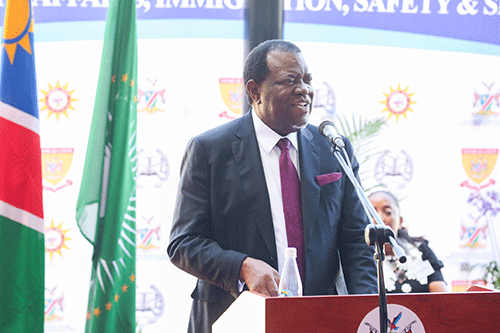President Hage Geingob says HIV/AIDS remains a public health issue that continues to rob Namibia of much-needed human capital and compromises our socio-economic progress.
“We must increase efforts to prevent the further spread of HIV/AIDS. To achieve the goal of eliminating AIDS as a public health threat by 2030, HIV prevention efforts must be strengthened to complement the ongoing rollout of HIV treatment and counselling services to more communities,” he said yesterday.
World AIDS Day is observed on 1 December every year. It is observed to show support for HIV-infected individuals and pay tribute to AIDS patients.
World AIDS Day was established in 1988 as the first international health day.
This day also encourages people to band together on a global scale to close the gaps and inequities that impede HIV testing, prevention and access to care.
Namibia commemorated World AIDS Day in Ondangwa, Oshana region, this year.
Geingob noted Namibia has made great strides in the fight against HIV/AIDS by reaching the UNAIDS ‘90-90-90’ targets but a lot more needs to be done, saying, “let us be vigilant as we work towards an HIV-free nation. I am confident that together we will win this fight”.
Health minister Dr Kalumbi Shangula this week also shared that for many years, Namibia, like other countries around the world, has been combating the HIV/AIDS epidemic, adding that good progress has been made since then.
“To an extent that we can now say that AIDS, caused by HIV, is just another chronic disease that can be managed through appropriate treatment with the available medications that we know as anti-retroviral medicines,” he said while addressing the community in Ohangwena.
Shangula said although good progress has been made, there are still some challenges concerning some sections of the population, saying many Namibians are at risk – either of contracting new infections or defaulting on treatment.
“We can only defeat the HIV epidemic when we can reach the global targets of 95-95- 95. Namibia now stands at 92% of people living with HIV, knowing their HIV status; 98% of people who know their status on treatment, and 93% of people on treatment with suppressed viral loads,” he said.
Shangula stated in light of these statistics and because there are sections of the population that need more focused attention in the last mile to defeat HIV, the ministry introduced differentiated service delivery (DSD) models.
“These models aim to continue delivering effective and equitable delivery of services, especially for people living in remote and hard-to-reach areas. Differentiated service delivery is a people-centred approach to HIV service delivery. This means that we are moving away from a one-size-fits-all model. Thus, differentiated service delivery directs HIV services to diverse groups of people living with HIV, while maintaining the principles of the public health approach,” said Shangula.
Swapo Party Youth League (SPYL) is further appealing to all young people, particularly sexually active ones to get tested periodically and for men to get circumcised to prevent the risk of acquiring HIV, and called on pharmacies to play their roles.
“Pharmacies and other service providers should play their role to ensure all drugs are ordered on time and that continuous outreach services are conducted for those who cannot access health facilities due to long distances/any other challenges faced. This is to avoid hindering treatment adherence due to drug shortage in health care facilities,” said the league’s secretary Ephraim Nekongo.
– psiririka@nepc.com.na



